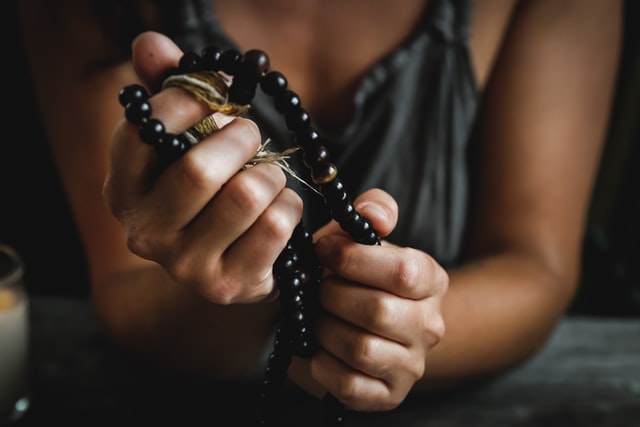
Not being able to sit still and quiet the mind is one of the biggest complaints I hear from people new to meditation. Sitting down and closing one’s eyes quickly turns into an open invitation for incessant internal chatter, for reviewing the day, or mentally completing old conversations. As common as it is, it’s helpful to get a personal perspective. For this reason, one of my first questions is has your mind has really gone into sudden overdrive or, are you simply noticing the state it’s in for most of the day? If you want to break down what’s really happening in your practise, including setbacks, it helps to acknowledge that it’s about you as a whole, and not only who you’re trying to be when you sit on your mat. From this standpoint you can tailor your mediation and in turn become more focused.
If you’re thinking about starting, or already having trouble with it, consider the below pointers.
Have helpful expectations
Like anything, meditation takes practice. In what other areas of your life have you expected instant mastery? Perhaps with driving a car the first few times, a career change, or learning to play a new sport? Unlikely. The pressure people heap on themselves within the first few weeks or months of meditation is usually unprecedented in their lives. The rate at which people give up is also surprisingly high, especially amongst those who normally pride themselves on meeting goals. Mediation is not about instant gratification, it’s a process.
Set an intention
What’s your intention with meditation, why are you doing it and what do you want from it? There are so many different types of experience to be had that setting an intention is a really wise move. For example, knowing that you’re going into an active meditation, where you communicate with your guides, or astral travel, will take the pressure off the need for internal silence. Likewise, knowing you’re doing a listening meditation, where you focus on the sounds around you, can make it easier to accept the noises that would otherwise become distractions. There are many different options when it comes to setting intentions, being clear about your desire will help to put you on the right path.
Be receptive
In your early days of meditation the experience is likely to be a receptive one, where your only job is to receive information, feelings or stillness, as it comes in. This is really heart-based work and simple bodily adjustments, such as placing a hand over your chest and connecting to your heart, will help you to focus on your experience.
It’s not all about patience
Meditating in itself is an exercise in simply being, not waiting, and good things will often come unexpectedly. If being for you currently means sitting with a thousand thoughts circling around your mind, then that’s what it is, at some point it will change. Change is certain. Ending a meditation session that hasn’t gone as you’d like it can feel disappointing or unsatisfying, and this is a call to explore those feelings within yourself. With meditation, chasing a particular outcome will keep it running from you, so it’s best to simply be and have that outcome approach you instead.
What type is best for you?
Do your research, there are as many types of meditations as there are people who want to try them. Simply because one doesn’t work out for you is no reason to call the whole show off. Try transcendental or guided meditations, investigate mirror work or mantras and ascension meditation. People connect with different practices for personal reasons, so tap into what will work for you, try more than one.
The how is not everything
You don’t have to be sitting down, you don’t need your eyes closed, you don’t even need to be still. However you feel is an effective way to mediate will be the best way for you. Some people are able to do it laying down because sitting is uncomfortable, others prefer walking or cycling. What you can and are able to do will change over time, so start by listening to what your body or mind need.
Any environment can work
Not everyone has a dedicated meditation space, but everyone can bring things into the space they chose to use for meditation. Think about the things that relax you, candles, scents, music, crystals, a favourite t-shirt. There are no rules here and making an effort at creating clear, sacred space, can calm even the most hectic of environments.
What else are you doing?
Meditation is complemented by engaging in other activities in your life, ones that make your soul feel heard and able to communicate. This can be as simple as taking walks, exercise, reading, and all manner of hobbies that remove you from tension and any resistance to daily life. Meditation can help to fix a lot of things, but double it up with something else and the power is magnified.
The most important thing to remember in all of this is that you must be kind to yourself. No one is judging you except yourself. Honour the reason you chose to try meditation and take your time with it.